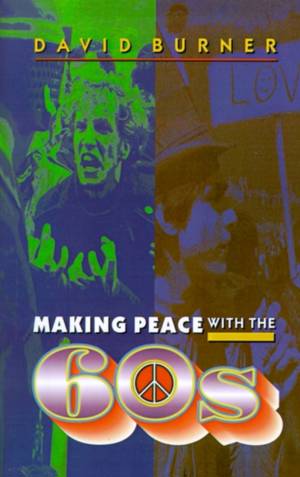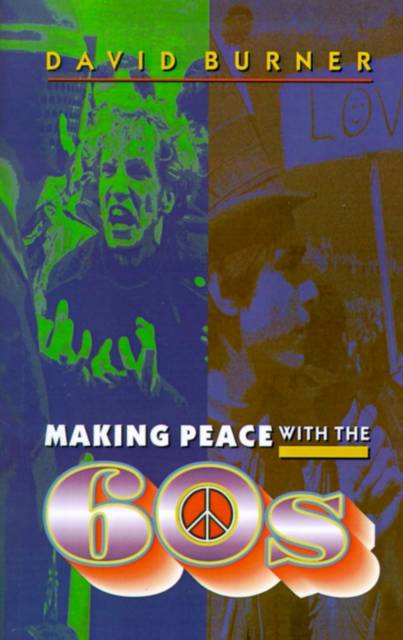
- Afhalen na 1 uur in een winkel met voorraad
- Gratis thuislevering in België vanaf € 30
- Ruim aanbod met 7 miljoen producten
- Afhalen na 1 uur in een winkel met voorraad
- Gratis thuislevering in België vanaf € 30
- Ruim aanbod met 7 miljoen producten
Omschrijving
David Burner's panoramic history of the 1960s conveys the ferocity of debate and the testing of visionary hopes that still require us to make sense of the decade. He begins with the civil rights and black power movements and then turns to nuanced descriptions of Kennedy and the Cold War, the counterculture and its antecedents in the Beat Generation, the student rebellion, the poverty wars, and the liberals' war in Vietnam. As he considers each topic, Burner advances a provocative argument about how liberalism self-destructed in the 1960s. In his view, the civil rights movement took a wrong turn as it gradually came to emphasize the identity politics of race and ethnicity at the expense of the vastly more important politics of class and distribution of wealth. The expansion of the Vietnam War did force radicals to confront the most terrible mistake of American liberalism, but that they also turned against the social goals of the New Deal was destructive to all concerned.
Liberals seemed to rule in politics and in the media, Burner points out, yet they failed to make adequate use of their power to advance the purposes that both liberalism and the left endorsed. And forces for social amelioration splintered into pairs of enemies, such as integrationists and black separatists, the social left and mainline liberalism, and advocates of peace and supporters of a totalitarian Hanoi. Making Peace with the 60s will fascinate baby boomers and their elders, who either joined, denounced, or tried to ignore the counterculture. It will also inform a broad audience of younger people about the famous political and literary figures of the time, the salient moments, and, above all, the powerful ideas that spawned events from the civil rights era to the Vietnam War. Finally, it will help to explain why Americans failed to make full use of the energies unleashed by one of the most remarkable decades of our history.Specificaties
Betrokkenen
- Auteur(s):
- Uitgeverij:
Inhoud
- Aantal bladzijden:
- 302
- Taal:
- Engels
Eigenschappen
- Productcode (EAN):
- 9780691059532
- Verschijningsdatum:
- 11/01/1998
- Uitvoering:
- Paperback
- Formaat:
- Trade paperback (VS)
- Afmetingen:
- 157 mm x 234 mm
- Gewicht:
- 471 g

Alleen bij Standaard Boekhandel
Beoordelingen
We publiceren alleen reviews die voldoen aan de voorwaarden voor reviews. Bekijk onze voorwaarden voor reviews.











